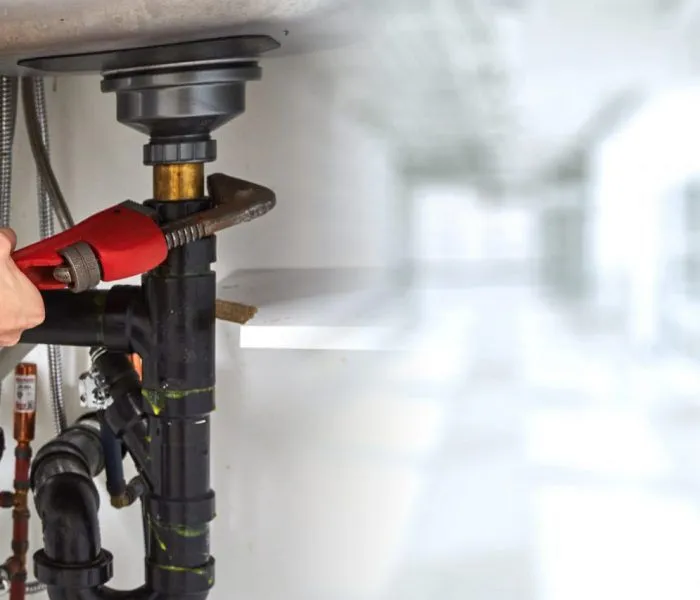Commercial plumbing holds pivotal but often underrated importance in the intricate dance of construction and maintenance. Ensuring the smooth flow of water and waste, commercial plumbing systems are the unseen backbone of buildings, factories, and public infrastructure. This article dives into the complexities of commercial plumbing, offering insights and advice for navigating this essential industry.
Understanding Commercial Plumbing
The Basics of Plumbing Systems
At its core, plumbing is the system of pipes, valves, fixtures, and other apparatus required for the water supply, heating, and sanitation in a building. Commercial plumbing, however, scales these basics up to meet the demands of larger structures and populations. This includes everything from multi-story office buildings and sprawling manufacturing plants to public facilities like hospitals and schools.
The Challenges of Scale
The main challenge in commercial plumbing is the scale and complexity of the projects. More significant buildings mean longer pipe runs, more fixtures, and more potential points of failure. Commercial buildings often have unique requirements, such as increased water pressure for fire suppression systems or specialized waste handling for industrial processes.
Navigating Commercial Plumbing Solutions
The Importance of Design
A well-thought-out design is the foundation of any successful commercial plumbing project. This phase involves careful planning to ensure the system can meet the building’s needs, comply with local codes and regulations, and be maintainable over its lifetime. It’s a collaborative effort requiring input from architects, engineers, and plumbing professionals to create an efficient, reliable, and adaptable system for future changes.
Selecting the Right Materials
Material selection plays a crucial role in the durability and efficiency of plumbing systems. For example, the choice of pipe material can affect everything from water quality to maintenance requirements. Common materials include copper, known for its durability and resistance to corrosion, and PVC, prized for its low cost and ease of installation. The correct material choice balances upfront costs with long-term benefits.
The Role of Professional Expertise
Finding the Best Commercial Plumbers
When it comes to implementing and maintaining these complex systems, the expertise of the best commercial plumbers is invaluable. These professionals bring a depth of knowledge and experience, ensuring that projects are completed efficiently and up to code. They are adept at troubleshooting and have the skills necessary to handle the unique challenges of commercial plumbing systems.
The Value of Ongoing Maintenance
Preventative maintenance is another critical aspect of commercial plumbing. Regular checks and maintenance by skilled plumbers can prevent minor issues from becoming major problems, saving time and money in the long run. This includes everything from routine inspections and cleaning to replacing worn parts.
Embracing Technology in Commercial Plumbing
Innovations in Plumbing Technology
The plumbing industry is not static; it continuously evolves with technological advancements, adapting to the ever-changing needs of commercial structures and environmental standards. Modern tools and techniques, such as video pipe inspections, trenchless pipe repair, and sophisticated leak detection systems, offer less invasive, more cost-effective, and significantly more efficient solutions for maintaining commercial plumbing systems. These advancements not only streamline the installation and repair processes but also minimize the disruption to daily operations, a critical consideration for businesses. Additionally, adopting water-saving fixtures and automated water management systems and integrating intelligent sensors and IoT (Internet of Things) devices are becoming standard in making buildings more sustainable and eco-friendly. These innovations significantly reduce water usage and energy consumption, aligning with global sustainability goals and providing long-term cost savings for businesses.
The Future of Commercial Plumbing
The integration of intelligent technologies promises to transform commercial plumbing further. Sensors that monitor water pressure, temperature, and flow rates in real time can help identify leaks and inefficiencies early. As these technologies become more widespread, they will play a key role in reducing water waste and enhancing the sustainability of commercial buildings.
Conclusion
Navigating the world of commercial plumbing is no small feat. It requires a solid understanding of the fundamentals, a keen eye for design, and an appreciation for the role of professional expertise. Whether you’re involved in constructing a new facility or maintaining an existing one, the importance of a reliable plumbing system cannot be overstated. By embracing technological advancements and prioritizing sustainability, the future of commercial plumbing looks bright, promising more efficient, resilient, and environmentally friendly systems.


